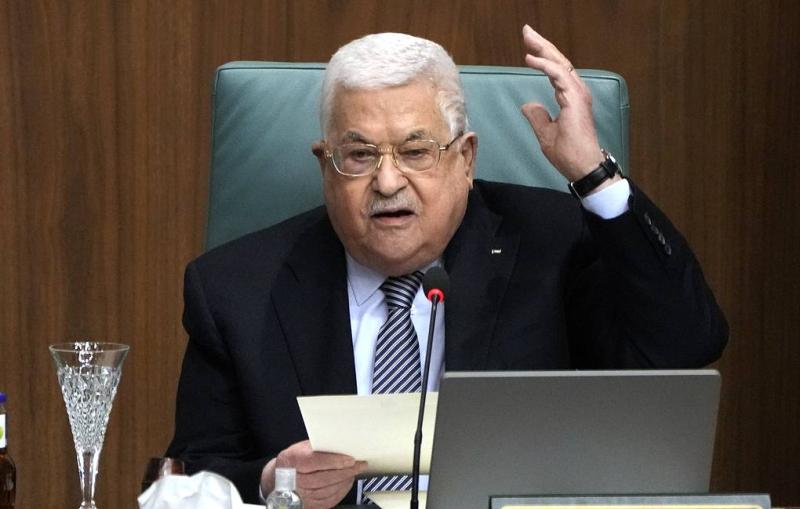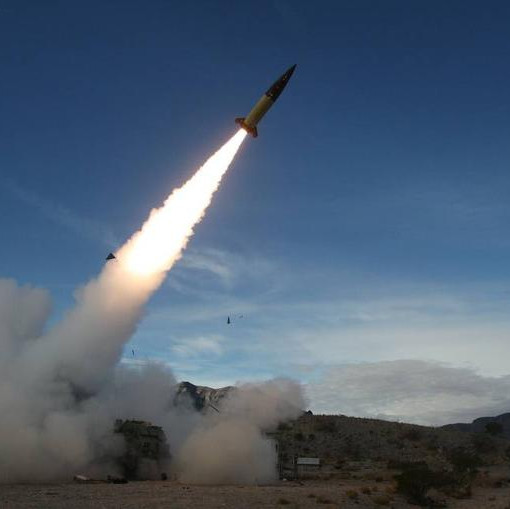
Palestinian President Mahmoud Abbas arrives in Moscow for talks with Putin, IAEA in no hurry to blame the latest attack on Zaporozhye nuke plant on Kiev; and Washington braces for Iranian retaliation against Israel. These stories topped Tuesday's newspaper headlines in Russia.
Vedomosti: Palestinian President arrives in Moscow
Visiting President of the Palestinian National Authority Mahmoud Abbas plans to hold talks with Russian leader Vladimir Putin in Moscow on August 13. He intends to discuss the situation in the Middle East, including the war in the Gaza Strip and prospects for resolving the Palestinian issue, Palestinian Ambassador to Russia Abdel Hafiz Nofal said. "We are in a very difficult situation, and Russia is our close ally. We need to consult," the diplomat told TASS on Monday. Apart from talks with Putin, Abbas is also planning to meet with Arab ambassadors in Moscow, Nofal said.
Jointly with the United States, the EU and the United Nations, Russia is a mediator in the Palestinian-Israeli conflict as part of the quartet on the Middle East, which has been dormant since 2000. Since the war in the Gaza Strip broke out in October 2023, Putin has held three telephone conversations with Abbas to discuss the situation in the region. Abbas last visited Russia on November 23, 2021 when he held talks with Putin in Sochi, and the two leaders last met in person at the summit of the Conference on Interaction and Confidence-Building Measures in Asia on October 13, 2022.
During the Moscow talks with Putin, the Palestinian leader will discuss potential ways of maintaining a peace-oriented dialogue between Israel and Hamas after the assassination of the Palestinian radical movement’s political chief Ismail Haniyeh in Tehran on July 31, Russian International Affairs Council (RIAC) expert Kirill Semyonov believes. The two leaders will also discuss potential steps toward overcoming the rift between Hamas and the Palestinian nationalist political party Fatah, and they will likely broach the subject of developing cooperation between Russia and Palestine, the expert continued.
However, Abbas’s visit to Russia will hardly help revive talks between Hamas and Israel, as Moscow has maintained a wait-and-see approach toward the ongoing conflict and has not been a proactive participant of the Palestinian settlement of late, Ibragim Ibragimov, a researcher at the Russian Academy of Sciences’ Institute of World Economy and International Relations, told Vedomosti. "The Russian authorities doubt their moves on the Palestinian track will be worth the effort or resources, as the Gaza war involves too many external actors already. Besides, Israel has not sought Russian mediation," the expert explained.
Following talks in the Russian capital, Abbas will travel to Turkey on August 14 for a meeting with his Turkish counterpart, Recep Tayyip Erdogan, the head of media and communications in the Turkish presidency, Fahrettin Altun, announced on July 31.
Izvestia: IAEA chief refuses to say who is to blame for attack on Zaporozhye nuke plant
On August 12, inspectors from the International Atomic Energy Agency (IAEA) arrived at the Zaporozhye Nuclear Power Plant to assess the situation there after it was attacked by Ukrainian kamikaze drones the day before. While the UN nuclear body has not yet made any official statements upon its inspection, IAEA Director General Rafael Grossi underscored the first reports about the incident at the ZNPP by saying that such actions jeopardized nuclear safety at the plant, increased the risk of a nuclear accident and should be stopped, without identifying who is responsible for the attack.
Following the latest attack on the ZNPP, Russian Foreign Ministry Spokeswoman Maria Zakharova called on the international community to take measures on Ukraine as soon as possible. Meanwhile, Austrian Chancellor Karl Nehammer became the only Western European leader to comment on the incident as he urged de-escalation and pushed for more negotiations on resolving the Ukraine crisis to build on the Swiss conference in mid-June.
Against this background, Russian troops continue to grapple with the Ukrainian incursion in the borderline Russian region of Kursk. According to military expert Alexey Leonkov, Ukraine is throwing its weight behind capturing a critical facility for use as leverage later. "They have repeatedly failed to occupy the Zaporozhye NPP before," he recounted. "As they realized that everything was in vain there, they resolved to try to take the Kursk NPP, but all their efforts to go the distance with this, pulling reserve troops, will not yield the desired results," the expert maintained. "All of Ukraine's attempts to break through toward the Kursk NPP have caused heavy losses among well-trained fighters of elite Ukrainian units, including foreign mercenaries," he explained.
"If Ukraine continues to deploy its best troops to Kursk and leave other sectors [of the frontline] exposed, [Russia] may be able to use this to its benefit," another military expert, Viktor Litovkin, argues. "It depends on our own situation and on whether we are ready to take advantage of this," he told Izvestia.
The United States continues to accelerate its naval presence in the Middle East. Defying convention, US Defense Secretary Lloyd Austin ordered the guided-missile submarine USS Georgia to the region to reinforce its carrier strike group there on Monday. The move comes as the world has been awaiting an Iranian retaliation to the assassination of Hamas Politburo chief Ismail Haniyeh in late July and of Fuad Shukr, a commander of the Lebanese Shiite movement Hezbollah, for more than a week now.
The presence of two aircraft carriers and a guided-missile submarine should not be linked with any intention to carry out a pre-emptive strike on Iran, Ilya Kramnik, researcher with the Center for Strategic Planning Studies at the Russian Academy of Sciences’ Institute of World Economy and International Relations, told Vedomosti. According to him, "the US order is a means to intercept a potential missile attack on Israel." These two aircraft carriers are not enough for a pre-emptive strike, nor will they suffice to drag the United States into the regional conflict in the Middle East directly. "Perhaps, Washington expects that Tehran will refrain from delivering a retaliatory strike on the Israelis at all after assessing these risks," he argues.
Lev Sokolshchik, senior researcher with the Center for Comprehensive European and International Studies at the Higher School of Economics, argues that the United States has tended to deploy aircraft carriers to critical zones around the world. He agrees that in this way, Washington is demonstrating its capabilities to Tehran while warning of potential consequences. Meanwhile, the US has concentrated forces in the Asia-Pacific with an eye toward deterring major rival China there, the expert said.
In the Middle East, neither Washington, nor local actors are looking to escalate the conflict around the war in the Gaza Strip that has been raging since October, even as the risk of the conflict widening persists, Sokolshchik explains. "For it will be hard to put an end to a larger conflict, and even Iran, which was hurt by Israeli strikes, has been treading lightly. The United States, too, has had to maneuver, given its limited resources," the expert concluded.
Izvestia: Taiwan looks to develop new supersonic technology for Chinese containment
Taiwan has moved to beef up its combat potential amid the threat of a potential incursion from mainland China, which considers the self-governing island to be its breakaway province. Beijing believes reunification is only a matter of time. While it favors moving toward this peacefully, China does not rule out using force. Against this backdrop, Taiwan is seeking to develop a new supersonic combustion ramjet technology for its jets within the next three years, the Taipei Times reported, citing Taiwan’s National Defense Ministry.
Izvestia has contacted the Taiwanese ministry for comment, but the latter refused to issue a statement on its development of hypersonic weapons. Meanwhile, local media said the program is aimed at containing mainland China. While the project may give Taiwan a distinct advantage, it envisages developing heat-resistant materials and a combustor for hypersonic missiles rather than proper missiles, military expert Vadim Koroshchupov, a junior research fellow at the Russian Academy of Sciences’ Institute of World Economy and International Relations (IMEMO RAS), explained to Izvestia.
Beijing, too, has been building up its military capabilities. Apart from holding frequent drills around the island, the Chinese military is upgrading warfare. Among other things, the world’s largest attack ship is currently being built near Shanghai. Experts say China may launch the warship as early as next year.
Despite ample US support, the likelihood of Taipei delivering a pre-emptive strike is close to nil, said Yekaterina Zaklyazminskaya, senior researcher with the Center for World Policy and Strategic Analysis at the Russian Academy of Sciences’ Institute of China and Modern Asia. Taiwan’s hypersonic weapons project will be part of a larger containment strategy against mainland China being implemented in the Asian region by the United States, she explained. And whether US experts take part in the technology will depend on the outcome of the US election, she added.
Rossiyskaya Gazeta: Europe has increasingly fewer alternatives to Russian gas
Mere speculation that Russian gas transit via Ukraine may stop has pushed up gas prices in Europe by 23% over the past five days, by $91 to $475 per 1,000 cubic meters. This price hike comes as demand has weakened, the summer is moving to later stages, and the contract for pumping Russian natural gas to the EU via Ukraine expires in four and a half months.
If gas transit via Ukraine is halted, Europe will only have the TurkStream pipeline to increase imports from Russia with. And, Deputy General Director of the National Energy Security Fund Alexey Grivach says, only small volumes accounting for 10-20% of the transit amount can be pumped through the TurkStream.
The lack of infrastructure that could help link the "Turkish" gas pipelines to countries receiving Russian gas via Ukraine is the biggest problem, Project Manager at Implement Ivan Timonin explained to Rossiyskaya Gazeta. With Austria, Italy, Slovakia, Hungary and Moldova being the key buyers of Russian gas, the volumes can be fully replaced with "Turkish" pipelines for Hungary only, he said.
TASS is not responsible for the material quoted in these press reviews









